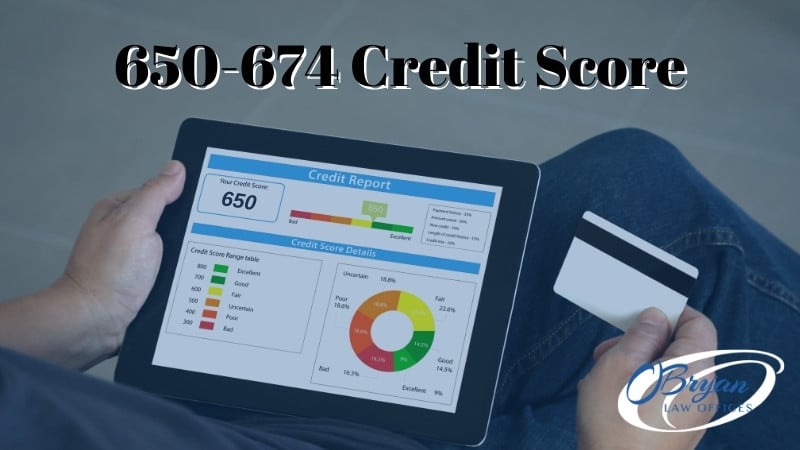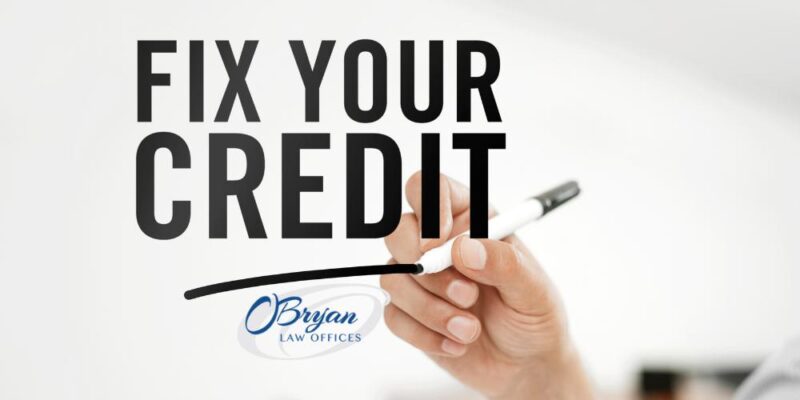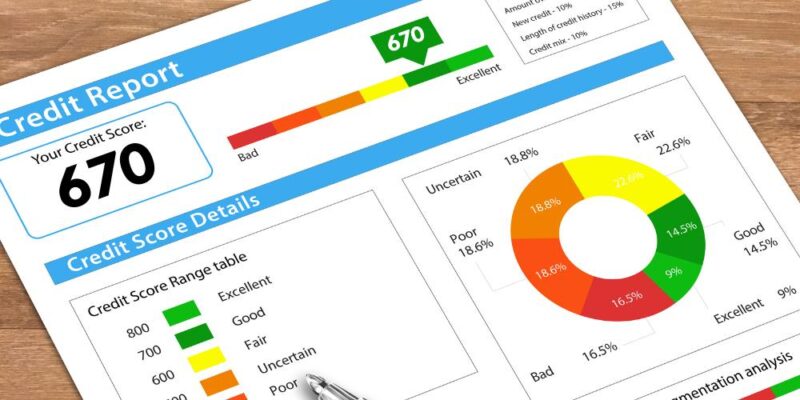650 Credit Score to 674 Credit Score

Home » Life After Bankruptcy » Restoring Credit » Credit Score Ranges » 650 Credit Score to 674 Credit Score

Your credit score and history have a significant impact on your life. You may already know that your credit score affects your ability to obtain a loan and how much that loan will cost you in interest. So, how will having between a 650 credit score and a 674 credit score help or hurt you? Will it make getting a loan easier or harder?
Importantly, credit scores aren’t only important when you’re applying for a loan for a big purchase such as a vehicle or a home mortgage. Did you know your job, cell phone bill, insurance, and ability to get cable service could also depend on your credit score? That’s because your credit score indicates how likely you are to repay your debts.
If you’ve found yourself in a tight spot with debt, bankruptcy may be a way out. Read on to learn more about credit, credit scores, and what your bankruptcy credit score may be if you file from our experienced Kentucky bankruptcy attorneys. For more tips on how to get out of debt with no money and bad credit, read our related guide.
What Are Credit Scores?
Credit scores are numerical representations of an individual’s creditworthiness and likelihood of repaying borrowed money. They are used by lenders, such as banks, credit card companies, and mortgage providers, to assess the risk of lending money to a particular individual. A higher credit score generally indicates a lower credit risk, while a lower score suggests a higher risk.
They are essential for various types of credit accounts, as well as getting a home loan, car loan, or credit card.
How Are Credit Scores Calculated?
Credit scores are calculated using complex algorithms that assess an individual’s credit history and various financial behaviors to determine their creditworthiness. The two most commonly used credit scoring models in the United States are the FICO score and the VantageScore. While the specific formulas used by these models are proprietary, they consider several key factors for the score on your credit report.
- Payment History (35% of FICO score, highly influential in VantageScore):
- Timeliness of payments on credit accounts, including credit cards, loans, and mortgages.
- Any late or missed payments, collections, or public records (like bankruptcies or tax liens).
- Credit Utilization (30% of FICO score, highly influential in VantageScore):
- The amount of credit being used compared to the total available credit limit. Keeping credit card balances low relative to credit limits is generally favorable for credit scores.
- Length of Credit History (15% of FICO score, moderately influential in VantageScore):
- The length of time an individual has been using credit. Longer credit histories have a positive impact on credit scores.
- Types of Credit (10% of FICO score, moderately influential in VantageScore):
- The mix of different types of credit accounts, such as credit cards, installment loans, and mortgages. Having a diverse portfolio of credit can be beneficial.
- Recent Credit Applications (10% of FICO score, less influential in VantageScore):
- Recent applications for new credit, such as credit card applications or loan inquiries. Multiple hard inquiries in a short period can hurt credit scores.
What Is a Fair Credit Score?
FICO and VantageScore are the two most widely used types of credit scoring, but their criteria for a Fair credit score differ slightly.
- According to FICO, a Fair credit score ranges between 580 and 669.
- VantageScore says a 601 to a 669 is a Fair credit score.
Fair credit falls in the middle of the credit score scale. Around 17% of Americans have Fair credit ratings.
What Is a Good Credit Score?
A FICO score of 700 or more is generally considered Good. FICO’s “Good” range is 670 to 739. The 300 to 850 range is used by the two newest VantageScore credit models (VantageScore 3.0 and 4.0). VantageScore considers 661 to 780 as the Good range for these recent models.
Fair Credit Score VS. Good Credit Score
You want the highest credit ratings possible to save money when you need a loan or credit. If you have a Fair credit score, lenders will consider you subprime. This means you will likely receive less favorable terms than someone with a higher credit score. This can result in higher interest rates or a rejected application.
Ways to Improve a Fair Credit Score
Improving your credit ratings includes the same types of activities that can damage your score. All you have to do now is put it in reverse and start doing the “right things.”
- Pay Your Bills on Time: In many credit score algorithms, establishing a positive payment history is the most important component.
- Improve Your Credit Utilization Ratio: Reduce the amount of credit you’re using or raise your credit limits to ensure you’re not using more than 30% of your available credit. A credit limit is the amount of money your lender allows you to spend on a line of credit.
- Don’t Over Apply: Only apply for credit when you truly need it, and don’t apply for multiple lines of credit at once. Credit card churning can be a dangerous game.
- Look for Errors: Pay close attention to the information on your credit reports and correct any mistakes you find.
- Avoid Fast Fixes: It’s important to remember that rebuilding your credit takes time.
- Credit Builder Loan: You could also try a credit builder loan. These loans differ from traditional loans in that you make fixed payments to the lender. Then, you can access the amount you paid at the end of the loan term.
- Secured Credit Card: Secured credit cards are to traditional credit cards as credit builder loans are to traditional loans. With a secured credit card, you make a cash deposit each month that you can use to make purchases.
650 Credit Score to 674 Credit Score
The 650 credit score to 674 credit score range is generally considered Fair, and a decent percentage of Americans have Fair scores. To learn more about how specific scores could impact you, have a look at the following sections.
Is a 650 Credit Score Good?
A FICO 650 credit score places you within the range of people whose credit is considered a Fair score. However, your FICO Score of 650 is lower than the average credit score in the United States, which is 704.
Your 650 credit score is almost inside the range of 670-739, which is considered Good. Examining the report that comes with your credit score may assist you in determining what caused your score to drop.
Is 653 a Good Credit Score?
A credit score of 653 is considered to be Fair. With a score in this range, it can be difficult to obtain credit without paying high fees and interest rates. Even though many people have fair scores, some lenders don’t like these odds and won’t work with consumers with scores in the Fair range. Consumers with Fair credit scores may be targeted by lenders who specialize in “subprime” borrowers that often charge exorbitant fees and interest rates.
Is 655 a Good Credit Score?
A score of 655 places you in the fair range, which means that you may still qualify for various forms of credit. However, you might face some limitations and less favorable terms compared to individuals with higher scores. Lenders may approve your credit applications but could offer you higher interest rates or lower credit limits.
Is 656 a Good Credit Score?
You need a score of at least 700 to have “Good” credit. However, a 656 credit score isn’t “bad.” It’s considered to be a Fair credit score. Credit cards and loans should be available to you, but a little credit repair will open up a lot of doors and allow you to save money.
Credit scores in the 656 range fall into two categories. On the one hand, there’s the rising score of 659 that’s just a stop along the route to Good credit, Great credit, and, eventually, Excellent credit. Then there’s the 656 credit score that’s on the way down.
Is 659 a Good Credit Score?
A credit score of 659 is classified as Fair. While financial institutions are unlikely to give you their best cards, you can still get good interest rates and terms without much effort. You’ll start to qualify for better cards as you make regular payments.
You must understand how certain acts will harm or help your credit score while creating a plan to rebuild your credit rating and keep in mind that it takes time to build up your credit score.
Is 663 a Good Credit Score?
The range for Fair credit scores is 580-699 for a FICO Score and 601-699 for a VantageScore. With a score of 663, you are very close to the Good credit score range of 670-739. The best thing you can do is focus on building your credit and raising your scores. A great way to do this is to be added as an authorized user on an account by someone who has great credit. It’s also possible to have someone with good credit cosign for you.
Is 666 a Good Credit Score?
The average FICO Score is 704, which is somewhat higher than your 666, showing that you have many opportunities for improvement. However, your 666 credit score is almost inside the range of 670-739, which is considered Good. You may be able to get your score up easily just by continuing to pay your bills on time, keeping your credit utilization below 30% across all of your accounts, and establishing a solid credit mix of revolving credit and installment debt.
Is 669 a Good Credit Score?
Your score of 669 is only one point away from the range (670-739) for Good credit scores. It’s also a great starting point to raise your score even higher. Increasing your credit score to the Good range can lead to additional credit possibilities, lower interest rates, and lower fees.
Having a FICO Score of 699 allows you to apply for a wide range of loans and credit cards, but raising your score can enhance your chances of being approved for even more, and under more inexpensive conditions.
Is 670 a Good Credit Score?
With a score of 670, you’re in the “good” range, which is generally a positive place to be. This score indicates that you are likely to qualify for most credit products, and you may receive reasonable interest rates and credit limits on loans and credit cards. However, it’s important to note that different lenders may have their own criteria. The terms offered to you can vary based on the lender’s policies and your overall credit profile.
Is 672 a Good Credit Score?
With a 672 credit score, getting a mortgage, vehicle loan, or personal loan is fairly simple. Lenders prefer to work with clients who have Good credit, because it is less risky.
672 is a median score and median scores are classified as “Good,” so lenders don’t consider you a high risk for loans and you shouldn’t experience too much trouble qualifying for one. Since a 672 FICO Score is towards the bottom of the Good level, you’ll want to keep an eye on it to avoid falling into the more restrictive Fair credit score range (580 to 669).
Is 674 a Good Credit Score?
A FICO Score of 674 falls within the Good range of scores, which range from 670 to 739. Consumers with Good FICO Scores are considered “acceptable” borrowers by a vast number of U.S. lenders, which means they consider you eligible for a wide range of credit products. However, they may not charge you the lowest interest rates or extend you their most selective product offers.
A little time and effort can help raise your score into the Very Good category (740-799).
Does Filing Bankruptcy Help Your Credit?
For a while, bankruptcy hurts credit ratings, but so does amassing debt. In reality, for many people, bankruptcy is the only way to get out of debt and improve their credit score. This is especially true if they have an overall rocky credit history.
Your bankruptcy credit score will be lower. High credit scores are affected more than low scores. The sliding scale system will deduct as many points as needed to demonstrate that you have bad credit. If you already have bad credit, your bankruptcy credit score may barely reduce.
For example, if you have a 750 credit score, it will take more of a hit from bankruptcy than a 650 credit score would.
Don’t worry – after bankruptcy, you should be able to concentrate on improving your bankruptcy credit score within 12 to 18 months after the filing. If they take the right steps, most people will experience some improvement after one year.
Call O’Bryan Law Offices Today
At O’Bryan Law Offices, we put our significant credit and bankruptcy knowledge to work for our clients. Whether they wish to file for bankruptcy to reorganize their finances or merely need debt counseling, we can help. A skilled Louisville bankruptcy attorney will guide you through each step of the process, ensuring that you emerge in a better financial position. Whether you have a 650 credit score or a 670 credit score, we can help you navigate bankruptcy and build a better credit score.
For additional information on filing for bankruptcy or bankruptcy credit scores, call today to schedule a free consultation at 502-339-0222.








